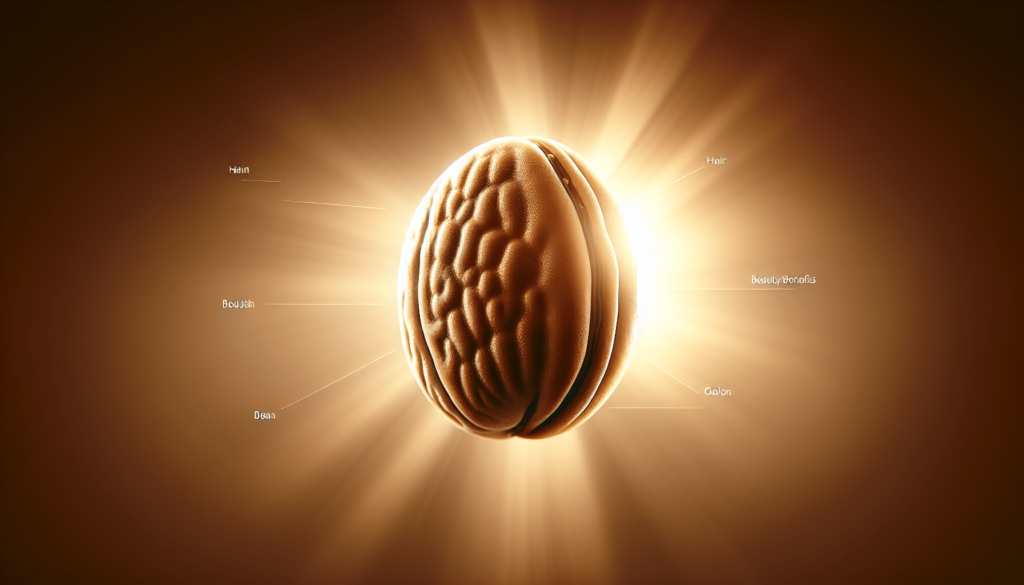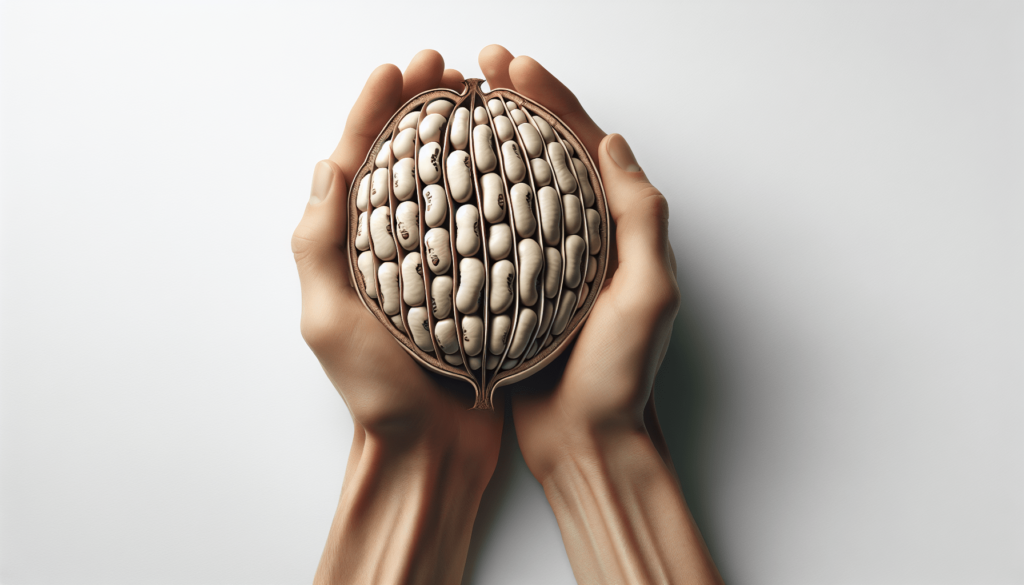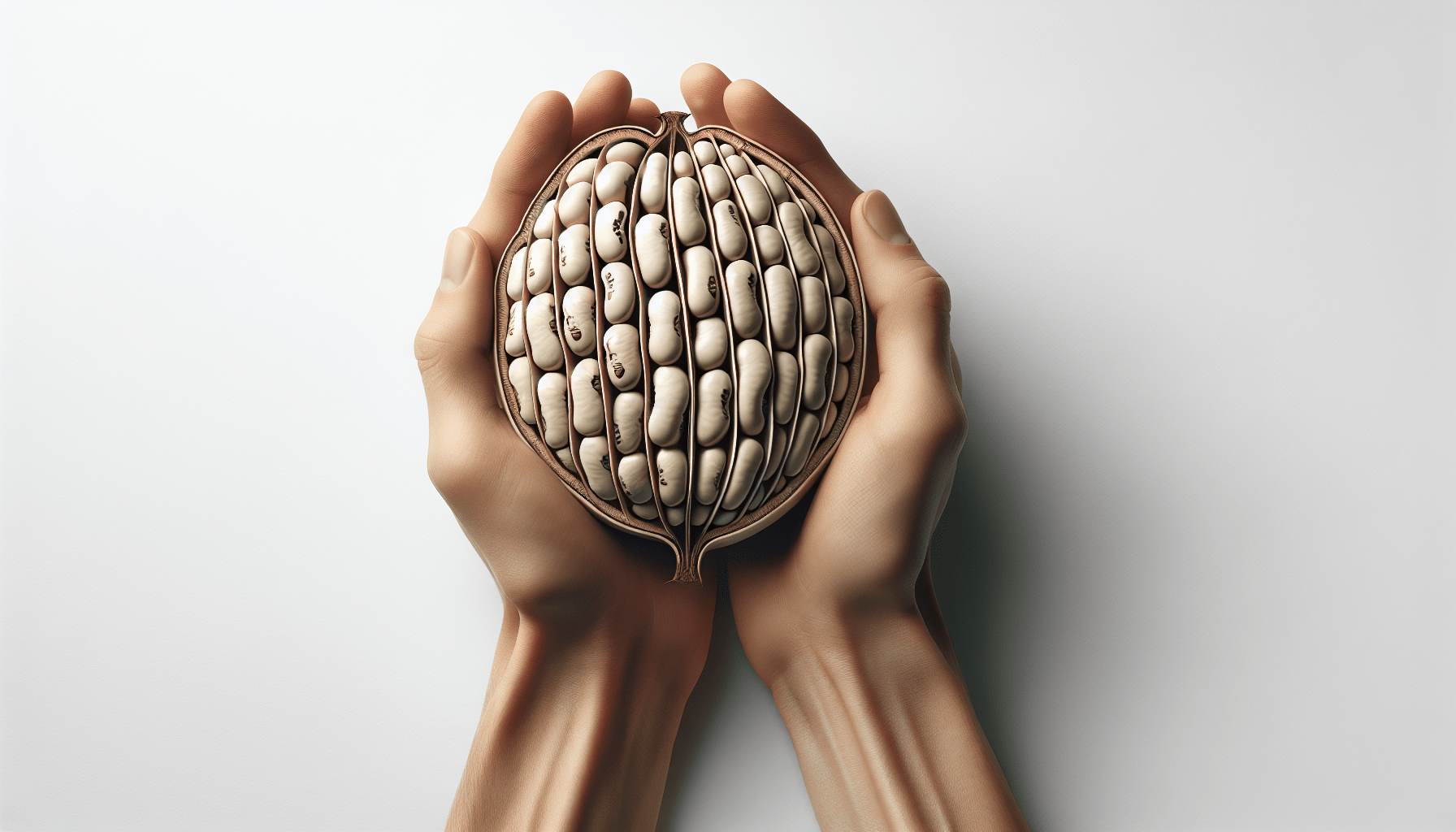Did you know that your favorite beans could be more than just a tasty addition to your meals? In addition to being a great source of protein and fiber, beans may also offer surprising benefits for your hair and skin health. Whether you prefer kidney beans, black beans, or lentils, these legumes contain key nutrients that can nourish and strengthen your hair and skin. So, next time you’re shopping for groceries, don’t forget to stock up on beans and create a beauty routine that starts right in your kitchen!

Nutritional benefits of beans for hair and skin health
Beans are a highly nutritious food that offer numerous benefits for both hair and skin health. They are an excellent source of plant-based protein, which is essential for maintaining the structural integrity of hair and promoting healthy skin. Additionally, beans are rich in vitamins, minerals, and antioxidants that can combat skin damage, promote hair growth, and contribute to overall skin and scalp health.
Protein content in beans
One of the key nutritional benefits of beans is their high protein content. Protein plays a vital role in the growth and repair of hair follicles, as well as the production of keratin, a protein that makes up the majority of our hair. Including beans in your diet can provide your body with the essential amino acids necessary for strong and healthy hair.
Vitamins and minerals in beans
Beans are also a rich source of vitamins and minerals that support hair and skin health. They contain significant amounts of biotin, a B-vitamin that is often referred to as “the beauty vitamin” due to its role in maintaining healthy hair. Biotin deficiency can lead to hair loss, dryness, and brittleness, making beans an excellent addition to your diet.
Additionally, beans are abundant in zinc and iron, both of which are crucial minerals for hair strength. Zinc helps to maintain the health of hair follicles, while iron is essential for the production of red blood cells, which carry oxygen and nutrients to the hair roots. Including beans in your meals can help ensure you’re meeting your daily requirements for these essential minerals.
Antioxidants in beans
Beans are a powerhouse of antioxidants, which are compounds that protect our cells from damage caused by free radicals. Free radicals can contribute to premature aging and skin damage, but antioxidants help neutralize their harmful effects. By incorporating beans into your diet, you can enhance your body’s ability to combat the oxidative stress that can lead to skin problems and hair damage.
Promotion of hair growth and strength
Protein’s role in hair growth
Hair is primarily made up of a protein called keratin, which provides strength, structure, and elasticity. Adequate protein intake is essential for ensuring that your body has the necessary building blocks to produce and maintain healthy hair. By including beans, a protein-rich food, in your diet, you can support the growth and strength of your hair.
Biotin in beans for hair health
Biotin, also known as vitamin B7, is a key nutrient for maintaining healthy hair. It helps to strengthen the hair shaft, prevent breakage, and improve overall hair quality. Beans, particularly kidney beans and black beans, are excellent sources of biotin, making them a valuable addition to your diet for promoting hair health.
Zinc and iron in beans for hair strength
Zinc and iron are essential minerals for hair strength and vitality. Zinc plays a crucial role in the growth and repair of hair, while iron is necessary for the production of red blood cells, which carry oxygen to the hair follicles. Beans, such as chickpeas and black beans, are rich sources of both zinc and iron, making them a valuable food for maintaining strong and healthy hair.
Maintenance of healthy scalp
Vitamins and minerals promoting scalp health
A healthy scalp is essential for maintaining healthy hair. Beans contain a variety of vitamins and minerals that promote scalp health, including vitamin A, vitamin E, and selenium. These nutrients help to nourish the scalp, prevent dryness and flakiness, and promote proper circulation, all of which contribute to optimal hair growth.
Folic acid in beans for scalp nourishment
Folic acid, also known as vitamin B9, is crucial for scalp nourishment and hair growth. It helps to strengthen the hair follicles and promote the production of healthy cells. Beans, particularly lentils and pinto beans, are excellent sources of folic acid, making them a valuable addition to your diet for maintaining a healthy scalp.
Omega-3 fatty acids in beans for reducing scalp inflammation
Inflammation of the scalp can hinder hair growth and lead to hair loss. Omega-3 fatty acids have anti-inflammatory properties that can help reduce scalp inflammation and create a favorable environment for hair growth. Beans, such as navy beans and kidney beans, contain omega-3 fatty acids, making them a beneficial food for maintaining a healthy scalp.

Improvement of skin health
Antioxidants combatting skin damage
As mentioned earlier, beans are rich in antioxidants, which can combat skin damage caused by free radicals. Free radicals can contribute to premature aging, wrinkles, and other skin problems. By including beans in your diet, you can increase your antioxidant intake and enhance your skin’s natural defense against oxidative stress.
Vitamin C in beans for collagen production
Collagen is a protein that plays a crucial role in maintaining the elasticity and firmness of the skin. Vitamin C is essential for the production of collagen, and beans, particularly kidney beans and pinto beans, are excellent sources of this vitamin. By incorporating beans into your diet, you can support collagen production and promote healthier, more youthful-looking skin.
Folate in beans for healthy skin cells
Folate, or vitamin B9, is important for the production and maintenance of healthy skin cells. It plays a vital role in DNA synthesis and repair, which is crucial for overall skin health and the prevention of skin problems. Beans, such as black beans and navy beans, are rich sources of folate, making them a valuable addition to your diet for maintaining healthy skin.
Hydration and moisture retention
Water content in beans for hydration
Proper hydration is essential for maintaining healthy hair and skin. Beans have a high water content, which can contribute to overall hydration and help maintain the moisture balance of your hair and skin. By including beans in your diet, you can supplement your hydration efforts and support the health and vitality of your hair and skin.
Phospholipids in beans for retaining moisture
Phospholipids are a type of fat that can help retain moisture in the hair and skin. Beans, particularly soybeans, are rich in phospholipids, making them a beneficial food for enhancing moisture retention. By incorporating beans into your diet, you can improve the moisture content of your hair and skin, resulting in a healthier and more hydrated appearance.
Minimizing hair and skin problems
Beans as an anti-inflammatory food
Inflammation is often a contributing factor to hair and skin problems, such as hair loss, acne, and skin irritations. Beans possess anti-inflammatory properties, thanks to their high content of antioxidants and other anti-inflammatory compounds. By including beans in your diet, you can help reduce inflammation and minimize the occurrence of hair and skin problems.
Reducing acne and breakouts
Acne and breakouts are common skin issues that can be frustrating and affect one’s self-esteem. Incorporating beans into your diet can help reduce the frequency and severity of acne thanks to their anti-inflammatory properties. Additionally, beans are low on the glycemic index, meaning they have a minimal impact on blood sugar levels, which may also contribute to the prevention of acne.
Preventing dry and frizzy hair
Dry and frizzy hair can be caused by a lack of moisture and a weakened hair cuticle. The hydration and moisture retention properties of beans can help combat these issues by providing the necessary moisture to hair strands. Including beans in your diet can improve the condition of your hair and help prevent dryness and frizz.
Different types of beans for specific benefits
Black beans for shiny hair
Black beans are rich in anthocyanins, which are antioxidants that give them their dark color. These antioxidants can enhance blood circulation to the scalp, promoting healthy hair growth and creating a natural shine. Including black beans in your diet can contribute to shinier and healthier-looking hair.
Kidney beans for skin elasticity
Kidney beans contain a significant amount of copper, a mineral that plays a crucial role in the production of collagen and elastin. Collagen provides structure to the skin, while elastin maintains its elasticity. By incorporating kidney beans into your diet, you can support collagen production and improve the elasticity of your skin.
Chickpeas for reducing hair loss
Chickpeas, also known as garbanzo beans, are a valuable food for reducing hair loss. They are an excellent source of iron, which is essential for the production of red blood cells and proper oxygenation of the scalp. Adequate iron levels can help prevent hair loss and promote healthy hair growth.
Incorporating beans into hair and skincare routines
Including beans in diet for overall benefits
To reap the full benefits of beans for hair and skin health, it is recommended to include them regularly in your diet. Incorporate a variety of different beans, such as black beans, kidney beans, and chickpeas, into your meals. Whether in salads, soups, stews, or as a side dish, beans can add nutritional value and support the health of your hair and skin.
Topical applications of bean-based products
In addition to consuming beans, there are also topical applications of bean-based products that can benefit hair and skin health. Some natural beauty products contain extracts or oils derived from beans, which can provide nourishment and moisture when applied directly to the hair or skin. Look for bean-based products in the form of masks, serums, or creams to incorporate into your hair and skincare routines.
DIY bean-based hair and face masks
Another way to harness the benefits of beans for your hair and skin is by creating DIY masks using bean-based ingredients. You can make a nourishing hair mask by mashing cooked beans and combining them with other ingredients like olive oil or honey. For a rejuvenating face mask, you can blend chickpeas with yogurt and turmeric. These homemade masks can provide added hydration, nutrients, and antioxidant benefits to your hair and skin.
Potential side effects and considerations
Digestive discomfort from excessive bean consumption
While beans offer numerous benefits, some individuals may experience digestive discomfort, such as bloating or gas, from consuming large quantities of beans. This is because beans contain complex carbohydrates that can be difficult to digest for some people. To minimize this potential side effect, it is advisable to gradually incorporate beans into your diet and ensure they are properly cooked.
Allergic reactions to beans
In rare cases, individuals may have an allergic reaction to beans. Allergies to legumes, including beans, can cause symptoms such as hives, itching, swelling, or difficulty breathing. If you experience any allergic symptoms after consuming beans, it is important to seek medical attention immediately.
Consultation with healthcare professional
Before making any significant changes to your diet or skincare routine, it is always advisable to consult with a healthcare professional. They can provide personalized advice and guidance based on your specific needs, health conditions, and potential interactions with medications or existing treatments.
Conclusion
Incorporating beans into your diet and skincare routine can offer multiple benefits for hair and skin health. The protein, vitamins, minerals, antioxidants, and other beneficial compounds found in beans contribute to hair growth, scalp health, skin improvement, hydration, and the prevention of hair and skin problems. However, it is important to maintain a balanced approach, considering individual preferences and potential side effects. By appreciating the nutritional value of beans and exploring various ways to incorporate them, you can enhance the health and appearance of your hair and skin.

